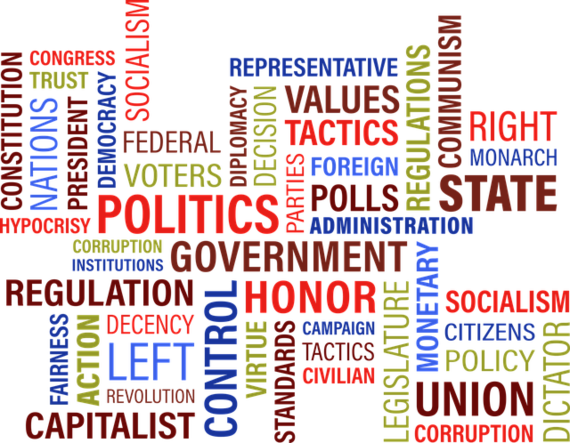In his book The Dynamics of Faith Paul Tillich famously defines one's object of faith as that for which one is willing to sacrifice everything. Some people sacrifice friends and family for money or fame. Others do so for a cause or idea. Others devote their lives to following God. Ultimately, however, a person can have only one god. When we rate other things as more important than God, or when we make God conveniently believe what we believe, we place our faith in false gods. That's Tillich's point.
Unfortunately, a number of gods seem to be making their appearance in the U.S. debate about climate change and about the environment in general. On the liberal side of the divide many environmentalists have been willing to displace people from their homes, whether in the Smokies or in Latin America, in order to establish parks that would protect endangered species and their ecosystems. They have espoused top-down, one-size-fits-all regulatory approaches that, while often improving water or air quality, also have often made it unnecessarily more difficult for businesses. All too often environmentalists have ignored the very real needs of the people living in the environment needing protection. While these attitudes and policies have improved greatly over time, particularly with the advent of sustainability thinking, the legacy of placing environmental quality above all else remains with us, particularly in its impact on many conservatives.
US conservatives tend to discount the extent of environmental problems as well as the idea that the government should play a role in dealing with them. Yet, most other countries exhibit a fairly wide consensus on the need to deal with environmental issues. Why does the US stand out as the exception?
The Emergence of the Environmental Divide
In her book entitled Between God & green (Oxford University Press, 2012) Katharine Wilkinson, a Sewanee Rhodes Scholar, explores the cause of this anomaly. She finds that large US firms affected by environmental regulations engaged in efforts to link anti-environmental attitudes with anti-abortion thinking in the minds of conservative evangelicals, thereby capturing the energy of a large bloc of voters. Other scholars have reached similar conclusions. By sowing skepticism about environmental science, particularly climate science, they succeeded to no small degree in convincing this large group of people that environmental problems either don't exist or that government shouldn't get involved.
Other research reveals that Americans increasingly tend to listen only to those who share similar views and to discount the credibility of those with whom they disagree. In a recent article the Guardian reports that a team of researchers at Texas Tech University examined liberal and conservative views of Pope Francis' recent encyclical on the environment, Laudato Si. The team concluded,
In sum, while [the] pope's environmental call may have increased some individuals' concerns about climate change, it backfired with conservative Catholics and non-Catholics, who not only resisted the message but defended their pre-existing beliefs by devaluing the pope's credibility on climate change.
In this case it appears that conservative Catholics tend to believe conservative political sources more than the head of their own church.
Prophets and Idols
Jesus and the Jewish prophets who preceded him exhibited little patience for those who closed their minds to new possibilities. They continually confronted those who "knew what they knew" with disturbing new ways of seeing things and of behaving. Most of the time, as a result, the prophets either were persecuted, run out of town, or killed. Their listeners used their own gods -- their beliefs, social positions or power -- as the touchstones for determining the truth of what they heard.
In our day we, too, face the question: who is our god? the market? government? environmental preservation? -- or God? Are we willing to have our most precious beliefs about the environment and politics challenged? Are we open to prophetic words? Do we have "eyes that see and ears that hear?" Or, do we judge new ideas and information by what we already know? Do we sacrifice truth on the altar of convenience and comfort? Do we worship idols of our own making instead of taking the risk to seek truth at any cost?
Periodically God attempts to shake us out of our complacency and comfort by asking us to consider whether or not someone who makes us squirm might possibly be saying something we need to hear. God does this because the world is far more complex and nuanced than we possibly can comprehend. Faced with this reality God calls us to humility so that we might be ready to change when called to do so.
If we do try to seek God, however we understand who God is, we have to be willing to listen to others and to have our precious beliefs challenged. Otherwise we run the risk of refusing to listen to God speak, making him or her pass our test of orthodoxy. Making God in our image is a risky thing for anyone to do. It's even riskier when we do it as a society.
More about this author
Certificate in Contemplation and Creation Care
Center for Religion and Environment at Sewanee: The University of the South

